air traffic controllers' union
description: labour union representing air traffic controllers
39 results
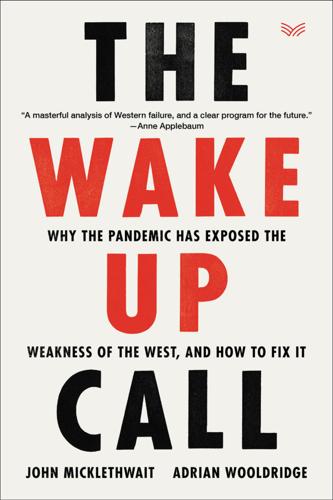
The Wake-Up Call: Why the Pandemic Has Exposed the Weakness of the West, and How to Fix It
by
John Micklethwait
and
Adrian Wooldridge
Published 1 Sep 2020
In 1979, Margaret Thatcher swept into Downing Street, with Hayek in her handbag, and a year later Ronald Reagan won the White House. Then the pair began, in Thatcher’s words, “a world-wide revolt against big government, excessive taxation and bureaucracy.”6 Reagan relished a battle with Leviathan, whether it came in the shape of the Soviet Union or the air traffic controllers union. But Thatcher was bolder in reforming government, partly because Britain was in so much worse shape than America and partly because she didn’t have Reagan’s luxury of running eye-watering deficits.7 It required nerves of iron to keep pushing ahead in the early 1980s even as her reforms devastated parts of the British economy—and, electorally, she was probably only saved by the 1982 Falklands war.
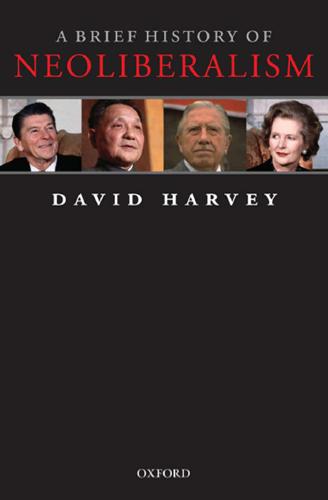
A Brief History of Neoliberalism
by
David Harvey
Published 2 Jan 1995
Volcker was supported in and reappointed to his position as chair of the Federal Reserve. The Reagan administration then provided the requisite political backing through further deregulation, tax cuts, budget cuts, and attacks on trade union and professional power. Reagan faced down PATCO, the air traffic controllers’ union, in a lengthy and bitter strike in 1981. This signalled an allout assault on the powers of organized labour at the very moment when the Volcker-inspired recession was generating high levels of unemployment (10 per cent or more). But PATCO was more than an ordinary union: it was a white-collar union which had the character of a skilled professional association.
…
But in 1978 the companies were allowed to take all the benefits of patent rights without returning anything to the state, assuring the industry of high and highly subsidized profits ever after.24 But all of this required that labour and labour organization be brought to heel to conform to the new social order. If New York pioneered this by disciplining powerful municipal unions in 1975–7, Reagan followed at the national level by bringing down the air traffic controllers in 1981 and making it clear to the trade unions that they were unwelcome as participants in the inner councils of government. The uneasy social compact that had ruled between corporate and union power during the 1960s was over. With unemployment surging to 10 per cent in the mid-1980s, the moment was propitious to attack all forms of organized labour and to cut back on its privileges as well as its power.
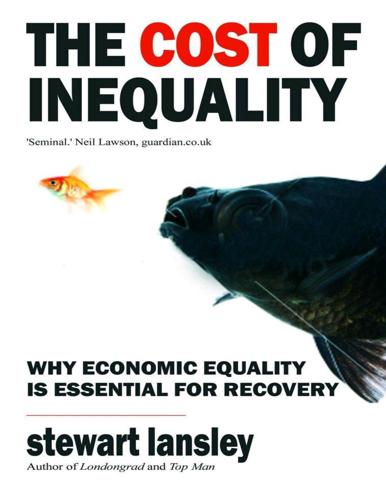
The Cost of Inequality: Why Economic Equality Is Essential for Recovery
by
Stewart Lansley
Published 19 Jan 2012
The Business Roundtable, a powerful group of Chief Executives of the country’s largest corporations founded in 1972, spent an annual $900 million on lobbying through the decade.55 From the mid-1970s, US employers launched a campaign of virulent anti-unionism, later described by Business Week as ‘one of the most successful anti-union wars ever’. Ronald Reagan played his own role in this war. Soon after he became President, he embarked on a bitter battle with PATCO—the air traffic controllers’ union. A technically illegal strike, Reagan eventually sacked 11,000 of the strikers— only 2000 had stayed in their posts—in August 5, 1981, and banned then from ever returning to work. It took years before the service could hire and train enough professionals to replace them. It was an early taste of what was to come.
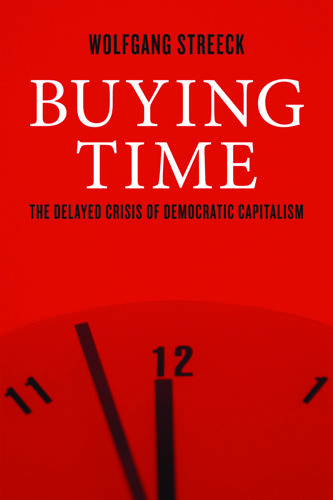
Buying Time: The Delayed Crisis of Democratic Capitalism
by
Wolfgang Streeck
Published 1 Jan 2013
Zollschan et al. [eds], Explorations in Social Change, London: Houghton Mifflin, 1964, pp. 244–57) that may give rise to a new crisis of social integration and thus raise again the old legitimation problems. 62 Two dramatic and symbolically important turning-points were Reagan’s breaking of the air traffic controllers’ union in 1981 and Thatcher’s defeat of the miners in 1984. 63 Fig. 1.7 leaves out Italy’s very high strike rates of the 1970s, which would have made the trend in other countries invisible on the scale. In Italy too, strike activity fell dramatically after 1980. 64 G. Krippner, Capitalizing on Crisis: The Political Origins of the Rise of Finance, Cambridge, MA: Harvard University Press, 2011. 65 In 1991 Clinton won the presidential elections with a campaign against the ‘double deficit’ (in the trade balance and the federal budget) that Reagan and Bush had left behind. 66 Fig. 1.1 shows that what I call the first phase of budgetary consolidation was by no means unsuccessful.
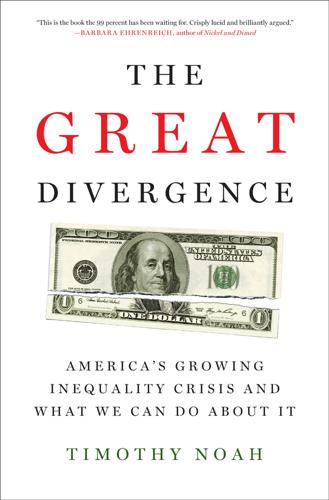
The Great Divergence: America's Growing Inequality Crisis and What We Can Do About It
by
Timothy Noah
Published 23 Apr 2012
“The vast majority of our work force was determined to bring in the union,” reads a testimonial from an unnamed “major” oil company. “One week before the election the union withdrew thanks to RBA.” The presidency of Ronald Reagan was the first to adopt a public stance that was openly and unapologetically anti-union.22 In 1981, when the air-traffic controllers’ union defied a legal prohibition against going on strike, Reagan fired the entire workforce and replaced it with scab labor. Rather than revile him for it, Congress eventually renamed Washington’s National Airport in his honor. Reagan lent enthusiastic support to Paul Volcker, the Carter-appointed chairman of the Federal Reserve Board, when the Fed’s inflation-fighting policies brought on a brutal recession in 1981–82.
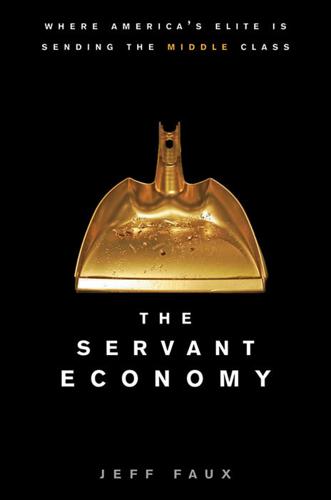
Servant Economy: Where America's Elite Is Sending the Middle Class
by
Jeff Faux
Published 16 May 2012
Having balanced the federal government’s books, Clinton and the Democrats set the stage for George W. Bush’s tax-cut frenzy. In 1981, reacting to a dispute over wages and working conditions between the air traffic controllers and the Federal Aviation Administration, Reagan broke the air traffic controllers’ union by firing and replacing the striking workers. Since the consolidation of the New Deal social contract at the end of World War II, employers had generally not attempted to permanently replace striking workers. In effect, if workers can be fired for striking, then they do not have the right to strike; they simply have the right to quit.
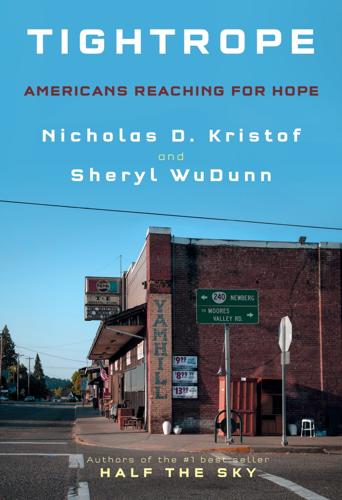
Tightrope: Americans Reaching for Hope
by
Nicholas D. Kristof
and
Sheryl Wudunn
Published 14 Jan 2020
Reagan both reflected and shaped the country’s mood in the 1970s when in his speeches he regularly denounced a Chicago welfare recipient: “She has eighty names, thirty addresses, twelve Social Security cards and is collecting veteran’s benefits on four nonexistent deceased husbands.”*2 After his election to the presidency, he famously declared in his inaugural address in 1981, “Government is not the solution to our problem; government is the problem.” He broke the air traffic controllers’ union, worker protections declined and the business world became much more powerful. As hostility toward government spread in America, there have been determined efforts to cut taxes, particularly for the wealthy, and then “starve the beast”—using reduced revenue to justify cuts in services for the disadvantaged.
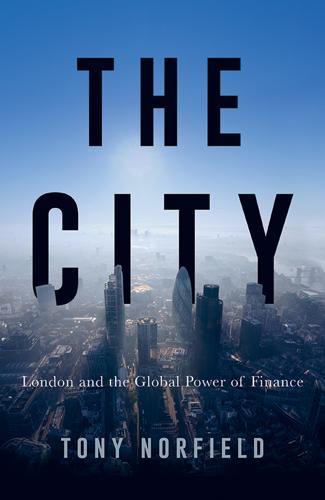
The City
by
Tony Norfield
The first factor behind a recovery of profitability, noted by a number of writers, was the attack on working-class living standards by the US government and business, in particular through the use of migrant labour and the marginalisation of labour unions. A signal event was the Reagan administration’s destruction of the air traffic controllers’ union, PATCO, after it declared a strike in 1981 – a destruction intended pour encourager les autres. These measures would have boosted profitability to some extent, although by how much is difficult to judge, but it was likely to have had only a one-time influence in the 1980s. Most measures of US rates of profit show lower rates from the mid-1990s onwards.
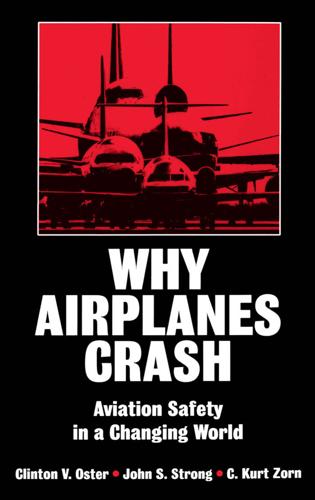
Why Airplanes Crash: Aviation Safety in a Changing World
by
Clinton V. Oster
,
John S. Strong
and
C. Kurt Zorn
Published 28 May 1992
Part 121 The section of Federal Air Regulations that applies to U.S. scheduled major commercial airlines. Part 135 The section of Federal Air Regulations that applies to many U.S. scheduled regional/commuter airlines and to some air taxi services. Professional Air Traffic Controllers Association (PATCO) The air traffic controllers labor union that voted to strike in 1981 and whose members subsequently were fired by the U.S. Department of Transportation. Pilot deviation Pilot action that results in the violation of a Federal Air Regulation or a defense zone regulation. Piston-engine An aircraft powered by a reciprocating internal combustion engine.
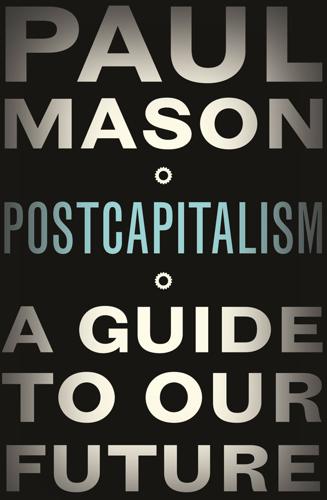
Postcapitalism: A Guide to Our Future
by
Paul Mason
Published 29 Jul 2015
They banned the wildcat and solidarity actions that had plagued managers in the boom years. But they did not, yet, try to dismantle welfare systems; these were needed to maintain social order in communities whose hearts had been ripped out. The attack on organized labour was punctuated by signal moments. In 1981, the US air traffic control union leaders were arrested, paraded in chains, and the entire workforce sacked for taking strike action. Thatcher used paramilitary policing to destroy the miners’ strike in 1984–5. But the anti-labour offensive’s true success was on a moral and cultural level. From 1980 onward, in the developed world, strikes diminished and so did union density.
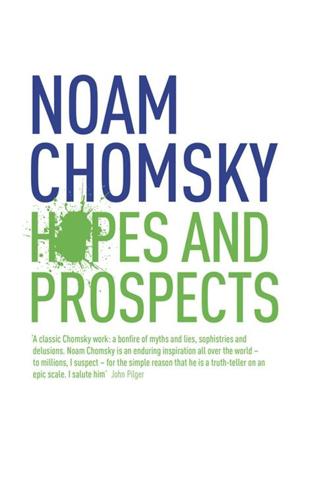
Hopes and Prospects
by
Noam Chomsky
Published 1 Jan 2009
He chose a Caterpillar plant, over objections of church, peace, and human rights groups, who were protesting Caterpillar’s role in providing Israel with the means to devastate the territories it occupies and to destroy the lives of the population—also killing an American volunteer, Rachel Corrie, who tried to block the destruction of a home.21 Apparently forgotten, however, was something else. Following Reagan’s lead with the dismantling of the air traffic controllers union, the new hardline CEO of Caterpillar, Donald Fites, rescinded the contract with the United Auto Workers in 1991, instituted a lockout, threatened to bring in “permanent replacement workers” (scabs), and later did so, for the first time in generations in manufacturing industry. The practice was illegal in other industrial countries apart from South Africa at the time; now the United States appears to be in splendid isolation.
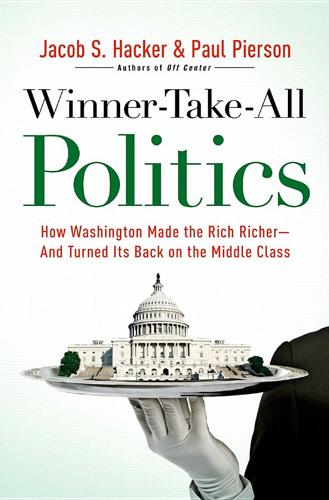
Winner-Take-All Politics: How Washington Made the Rich Richer-And Turned Its Back on the Middle Class
by
Paul Pierson
and
Jacob S. Hacker
Published 14 Sep 2010
The term “Reagan Democrats” captures Reagan’s success in winning white, working-class voters in both the South and the North— a crucial voting bloc that supported the charismatic candidate if not, yet, the GOP as a whole. Nor was it just campaign rhetoric. Reagan’s election accelerated Washington’s shift to the right on economic issues. Deregulatory momentum got an additional boost. Reagan’s famous showdown with the air-traffic controllers union, in which striking workers were summarily fired, was just the most visible face of an aggressively antiunion posture apparent in both the NLRB and the Department of Labor. Backed by a now much more organized conservative movement that fed the White House with a steady supply of policy ideas and personnel, Reagan stacked agencies with close allies of business.
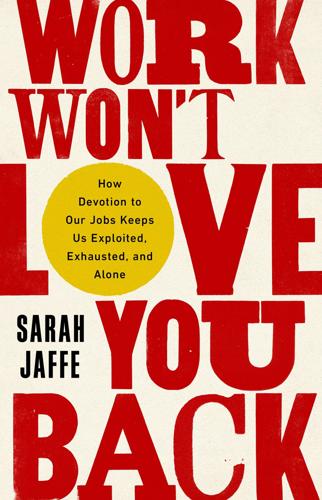
Work Won't Love You Back: How Devotion to Our Jobs Keeps Us Exploited, Exhausted, and Alone
by
Sarah Jaffe
Published 26 Jan 2021
Neoliberalism relies on such realism, even when—or perhaps especially when—it is faltering. 17 In the United States, Federal Reserve chair Paul Volcker’s “shock” in 1980, limiting the money supply and hiking interest rates, put tens of thousands of companies out of business. Cities like Youngstown, Ohio, saw more than one in five people out of work. Thatcher’s buddy Ronald Reagan won office that year and followed her path, slashing tax rates and breaking the air-traffic controllers’ union. The economic and political crisis of the 1970s had begun the process of deindustrialization, and Thatcher, Volcker, and Reagan stepped on the accelerator. Production was shut down in the rich countries and shipped elsewhere or automated. Autoworkers, used to calling strikes to halt production to make demands, were suddenly put in the position of calling for plants to be kept open.
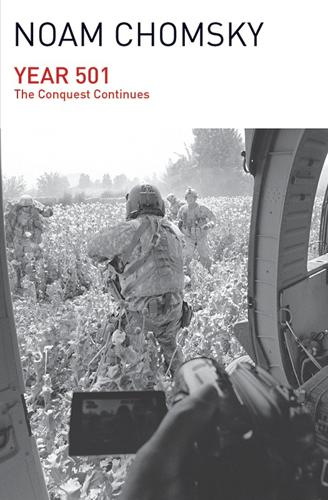
Year 501
by
Noam Chomsky
Published 19 Jan 2016
This is, of course, the historic project, intensified when need arises.9 Caterpillar decided in the ‘80s that its labor contract with the UAW was “a thing of the past,” the Tribune study observes: the company would “permanently change it with the threat of replacement workers.” That tactic, standard in the 19th century, was reinstituted by Ronald Reagan to destroy the air traffic controllers union (PATCO) in 1981, one of the many devices adopted to undermine labor and bring the Third World model home. In 1990, Caterpillar shifted some production to a small steel processor that had broken a Teamsters Local by hiring scabs, “a swift and stunning blow to the workers, a harbinger” of what was to come.
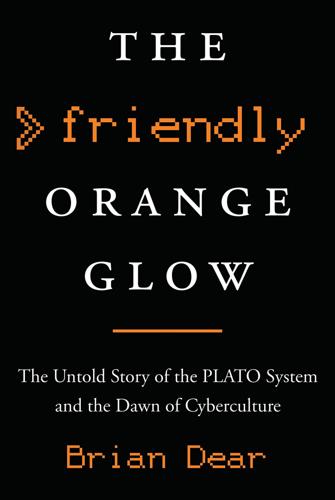
The Friendly Orange Glow: The Untold Story of the PLATO System and the Dawn of Cyberculture
by
Brian Dear
Published 14 Jun 2017
They still utilized full-scale, multimillion-dollar, full-motion cockpit flight simulators, and actual flying, of course, but PLATO played a key role in teaching the pilots how to use the various instruments and readouts on the then-new jet. Another group that benefited from PLATO was the Federal Aviation Administration (FAA). When President Ronald Reagan fired the striking members of the air traffic controllers union in 1981, the FAA was suddenly forced to hire a large number of new personnel and train them as quickly and effectively as possible on air traffic control so the skies would continue to be safe for travel. CDC swept in and sold the FAA a PLATO system and a large bank of terminals that were installed at its main Oklahoma City facility to train the new controllers.
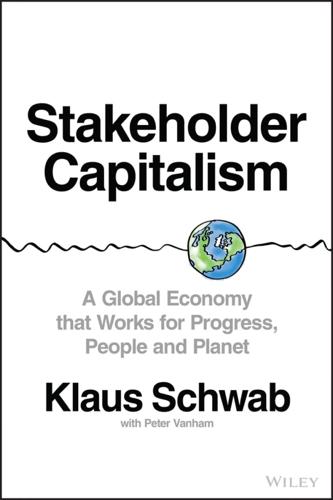
Stakeholder Capitalism: A Global Economy That Works for Progress, People and Planet
by
Klaus Schwab
Published 7 Jan 2021
In the 1980s, conservative Prime Minister Margaret Thatcher in the UK and Republican President Ronald Reagan in the US embraced a neoliberal agenda that proved anathema to public investment in fields like education and the power of unions. Under this ideology, collective bargaining by unions was a barrier to establishing free markets, and the state with its taxes and services was a drag on high economic growth. In the US, President Reagan famously fired all air traffic controllers who participated in a union-organized strike, thereby breaking the back of unions in the US. And in the UK, Prime Minister Margaret Thatcher broke a major miners’ strike, ending the dominance of unions in her country. Both leaders also significantly lowered top tax rates. This was supposed to free up money for investment by companies and high net worth individuals and realize a trickle-down economy.
…
Moller–Maersk case study on efforts to reduce, 167–168 Boston Consulting Group study on reducing, 167 CO2 emissions, 160, 161, 165–166, 182, 200, 202, 203, 207 EU's emissions cap-and-trade scheme to lower, 166, 183 fossil fuels, 49 Stakeholder Capitalism Metrics used to measure reduced, 249 See also Climate change; Pollution Green New Deal (EU), 183 Greenpeace, 50 Die Grünen (the Greens) [Germany], 78–79 The Guardian, 223 H Hartmann machine works (Chemnitz, Kingdom of Saxony), 103fig Hartmann, Richard, 103 Harvard Business School, 11 Health care COVID-19 pandemic revealing inequalities in, 3–4, 43, 73, 227 digital connectivity providing access to, 227–228 effective government focus on, 225–227 high EU percentage of GDP spent on, 231 high US cost of, 227, 231, 232 improving access in China, 225–226 Singapore's universal health care system, 230–232 Health inequalities COVID-19 pandemic revealing, 3–4, 43, 73, 227 health insurance, 43 wealth inequality, social mobility, and related, 41–42 Healthy365 app (Singapore), 232 Hess-Maier, Dorothee, 9 High-quality debt, 29 Hiroshima bombing (1945), 5 Hirsch, Jeffrey, 240 Hitachi (Japan), 142 Hong Kong carbon footprint per capita, 159 globalization driving economic growth of, 98 Nanyang Commercial Bank of, 57–58 See also Asian Tigers Horowitz, Sara, 242 Housing financial crisis 2008 and loss of, 227 redlining discriminatory practice, 226 Singapore's HDB public, 228–230 stakeholder government providing access to, 225–227 Housing Development Board (HDB) [Singapore], 228–230 Houston Natural Gas (US), 217 Houten, Frans van, 250 Huawei, 55, 60 Hughes, Chris, 128 Human capital definition of, 235 New Zealand's Living Standards Framework on, 235fig–236 Humanity Forward, 239–240 Human rights, Singapore's regulation of, 123 Hungary erosion of political center in, 83–84 Fidesz-KNDP coalition in, 83 financial crisis (2008) impact on, 112, 113 vote for right-wing populist parties (2000, 2017–2019), 84fig I IBM, 139 Iceland, 224 IDN Media (Indonesia), 94–95, 114 IDN Media HQ (Jakarta, Indonesia), 95 Inclusive Development Index (World Economic Forum), 189, 190 Income equality Denmark's success with, 119, 186 EPI plotting union membership against, 186 stakeholder government role in enabling, 178–179, 225 union membership impact on, 186 universal basic income (UBI) concept of, 239 See also Prosperity Income inequality COVID-19 pandemic revealing increased, 3–4, 43, 73 Elephant Curve of Global Inequality and Growth graph, 137–138fig First Industrial Revolution (19th century) and, 132–134 Gini Indices on China and India impact on, 37fig–38, 226 history of US, 34–36, 38–39fig, 88–89 impact on the global economic system by, 36–41 Kuznets curve on problem of, 34–41, 44–45 Kuznets Wave on, 45fig–46 wealth inequality higher than, 41 World Inequality Lab (WIL) on India and China's, 72–73fig World Inequality Report (2018) on, 38, 138fig See also Inequalities; Wealth inequality Independent contractors (freelancers), 237–238, 240–243 Independent Drivers Guild (New York), 238, 241–242 India continued trust in public institutions in, 196 COVID-19 pandemic impact on, 66, 67, 68–69 demographic changes in, 161 economic growth (1980s-2020) in, 66, 67–69, 96–97 gig workers of, 240, 243 Gini Indices on global income inequality impact of, 37fig–38 increasing national income inequality in, 40 protectionist policies and License Raj system of, 67, 69 WHO on unsafe air (2019) in, 72 World Inequality Lab (WIL) on rising inequality in, 72–73fig Indian Institutes of Technology (IIT), 68 Indignados protest (Spain), 40, 86 Indochina (19th century), 56 Indonesia Bandung entrepreneurs story (2012) on MYCL, 93–94, 96, 98, 114 continued trust in public institutions in, 196 economic recession (1997) in, 98, 109 gig workers of, 237, 240 globalization success stories in, 93–99 history of international trade by, 97 IDN Media, 94–95, 114 IT and Internet revolution role in expanding economy of, 137 predicted economic growth (2020–2021) in, 65–66 Spice Islands trade (Maluku Islands), 100 tech unicorns of, 66, 67fig Industrial Revolution (19th century), 56, 71, 108, 116, 119, 130–134, 161 Inequalities Benioff on the problem of growing, 210 Big Tech widening, 210 COVID-19 pandemic revealing increased, 3–4, 43, 73, 227 “digital divide,” 227 World Inequality Lab (WIL) on India and China's, 72–73fig See also Income inequality; Wealth inequality Inflation rates debt burden and low, 33 low-interest rates and low, 31–33 Infosys [India], 68 Infrastructure increasing funding gap (2016–2040) for, 32 New Zealand's physical capital, 235fig–236 Institute of International Finance (IIF), 27 Institutions international, 178, 179, 194, 196–197 loss of trust in public, 196 stakeholder model on need for robust, 185, 193–198 Intel, 141 Interest rates COVID-19 pandemic impact on, 31 low inflation and low, 31–33 US Federal Reserve (2009–2019), 31 Intergovernmental Panel on Climate Change (IPCC) [UN], 51, 149 Intergovernmental Platform on Biodiversity and Ecosystems Services (IPBES) report [2019], 51 International Bank for Reconstruction and Development (now World Bank), 6 International Business Council (World Economic Forum), 193, 214, 249 International communities aim to preserve peace, 179 civil society and the, 237–238 as key stakeholders, 178 weakening of institutions of, 194, 196–197 See also specific international community International Monetary Fund (IMF) continued low global GDP growth expectation by, 26–27 creation of the, 6 GDP measure used by, 24 on increasing rates of median debt by mid-2021, 28 lack of representation evidenced in, 197 2020 fiscal monitor of, 19 World Economic Outlook (2020) on ASEAN economies, 65–66 Internet “digital divide” and, 227 improving digital connectivity to, 225, 227–228, 232 Internet Agenda (World Economic Forum), 246 Internet Explorer, 139 Internet of Things, 18, 72, 161 InterNorth (US), 217, 218 Ireland, 194 Iron Curtain, 77, 80 Israel OPEC members in opposition to, 12 Yom Kippur War, 12 Italy COVID-19 pandemic impact on economy of, 68 erosion of the political center in, 83 Five Star Movement in, 83, 87–88 Marshall Plan to rebuild economy of, 6 Pitchfork protests (2013), 86 ruined post-World War II economy of, 5 J Jacobin Magazine (socialist publication), 243 Japan demographic decline in, 161 Second World War occupation of Chinese territory by, 56 Japanese economy economic boom (1945–1970s) in, 8, 109 reconstruction of post-war society and, 8 ruined post-World War II, 5 Jensen, Claus, 117 Jobs, Steve, 126 Johnson, Lyndon B., 135, 184 Jordan, 162 JPMorgan Chase, 132 Julius, Otto, 9 K Kambhampati, Uma, 224 Kennedy, John F., 76 Kenya, 27, 70 Keynes, John Maynard, 103, 104 Khadija, 99 Khan, Lina, 127, 140 Klein, Alice, 220 Klein, Ezra, 231–232 Kohl, Helmut, 78, 81 KPMG (US), 215, 250 Krugman, Paul, 127–128 Kuznets, Simon Smith, 21–25, 34, 44–45, 53, 234 Kuznets' theories Environmental Kuznets Curve, 21–22, 46–47, 53 on mistaken pursuit of GDP growth, 21–25, 34, 46, 53 on problem of income inequality, 34–41, 44–45 Kuznets Wave, 45fig–46 L Labor force automation challenges for, 115–126 collective bargaining in European countries, 10 comparison of US and Danish approach to, 117–120, 123 constructive relationship between Danish companies and, 117–120 Financial Times on loss of manufacturing jobs (1990–2016), 120 gig economy, 237–238, 240–243 increased female participation in the, 9 US and UK politically polarizing, 122–123 Labor market reskilling American labor market deficiencies in, 121–122 Denmark's “Active Labour Market Policies,” 120–121 Labor strikes call for global Uber and Lyft (2019), 187 UK miners' strike, 122 US air traffic controllers, 122 Labor unions collective bargaining, 10, 14, 17 EPI plotting income inequality against history of, 186 high membership in Denmark, 240 stakeholder approach to modern, 240–243 strikes held by, 122 Laissez-faire economy, 225 Lakner, Christoph, 137, 138 Lasn, Kalle, 40 Latin American countries average economic mobility improvement in, 44 capitalism vs. communism ideological battle in, 7 dropping voter turnout for elections in, 188 emerging markets in, 63 income inequality in, 40 “reefer ships” (1870s) and international trade by, 104, 110 “21st century socialism” of, 225 See also specific country “League of Legends” game, 60 Lee Hsien Loong, 230 Lee, Kai-Fu, 143 Legacy preferences (university admissions), 226 Lega (League) [Germany], 83, 88 Legatum Prosperity Index (2019), 231 Lenin, Vladimir, 22 Leonhard, David, 140 LGBTQ people, 123, 195 LGBTQ rights groups, 243 Liberal political parties (Europe), 188 License Raj system (India), 67, 69 “The Limits to Growth” study (Peccei), 47, 48, 52 Lin, David, 49 LinkedIn (US), 211 “Little Mermaid” statue (Copenhagen), 200 Liu Guohong, 57 Living Standards Framework (LSF) [New Zealand], 222–223, 234–236 Local government.
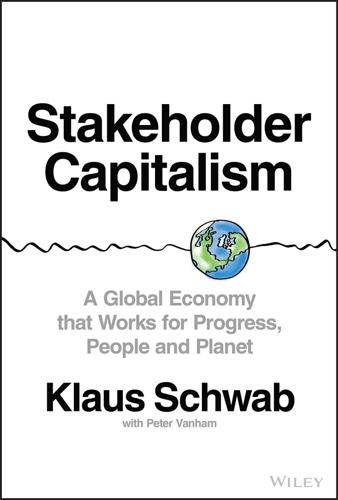
Stakeholder Capitalism: A Global Economy That Works for Progress, People and Planet
by
Klaus Schwab
and
Peter Vanham
Published 27 Jan 2021
In the 1980s, conservative Prime Minister Margaret Thatcher in the UK and Republican President Ronald Reagan in the US embraced a neoliberal agenda that proved anathema to public investment in fields like education and the power of unions. Under this ideology, collective bargaining by unions was a barrier to establishing free markets, and the state with its taxes and services was a drag on high economic growth. In the US, President Reagan famously fired all air traffic controllers who participated in a union-organized strike, thereby breaking the back of unions in the US. And in the UK, Prime Minister Margaret Thatcher broke a major miners’ strike, ending the dominance of unions in her country. Both leaders also significantly lowered top tax rates. This was supposed to free up money for investment by companies and high net worth individuals and realize a trickle-down economy.
…
Moller–Maersk case study on efforts to reduce, 167–168 Boston Consulting Group study on reducing, 167 CO2 emissions, 160, 161, 165–166, 182, 200, 202, 203, 207 EU's emissions cap-and-trade scheme to lower, 166, 183 fossil fuels, 49 Stakeholder Capitalism Metrics used to measure reduced, 249 See also Climate change; Pollution Green New Deal (EU), 183 Greenpeace, 50 Die Grünen (the Greens) [Germany], 78–79 The Guardian, 223 H Hartmann machine works (Chemnitz, Kingdom of Saxony), 103fig Hartmann, Richard, 103 Harvard Business School, 11 Health care COVID-19 pandemic revealing inequalities in, 3–4, 43, 73, 227 digital connectivity providing access to, 227–228 effective government focus on, 225–227 high EU percentage of GDP spent on, 231 high US cost of, 227, 231, 232 improving access in China, 225–226 Singapore's universal health care system, 230–232 Health inequalities COVID-19 pandemic revealing, 3–4, 43, 73, 227 health insurance, 43 wealth inequality, social mobility, and related, 41–42 Healthy365 app (Singapore), 232 Hess-Maier, Dorothee, 9 High-quality debt, 29 Hiroshima bombing (1945), 5 Hirsch, Jeffrey, 240 Hitachi (Japan), 142 Hong Kong carbon footprint per capita, 159 globalization driving economic growth of, 98 Nanyang Commercial Bank of, 57–58 See also Asian Tigers Horowitz, Sara, 242 Housing financial crisis 2008 and loss of, 227 redlining discriminatory practice, 226 Singapore's HDB public, 228–230 stakeholder government providing access to, 225–227 Housing Development Board (HDB) [Singapore], 228–230 Houston Natural Gas (US), 217 Houten, Frans van, 250 Huawei, 55, 60 Hughes, Chris, 128 Human capital definition of, 235 New Zealand's Living Standards Framework on, 235fig–236 Humanity Forward, 239–240 Human rights, Singapore's regulation of, 123 Hungary erosion of political center in, 83–84 Fidesz-KNDP coalition in, 83 financial crisis (2008) impact on, 112, 113 vote for right-wing populist parties (2000, 2017–2019), 84fig I IBM, 139 Iceland, 224 IDN Media (Indonesia), 94–95, 114 IDN Media HQ (Jakarta, Indonesia), 95 Inclusive Development Index (World Economic Forum), 189, 190 Income equality Denmark's success with, 119, 186 EPI plotting union membership against, 186 stakeholder government role in enabling, 178–179, 225 union membership impact on, 186 universal basic income (UBI) concept of, 239 See also Prosperity Income inequality COVID-19 pandemic revealing increased, 3–4, 43, 73 Elephant Curve of Global Inequality and Growth graph, 137–138fig First Industrial Revolution (19th century) and, 132–134 Gini Indices on China and India impact on, 37fig–38, 226 history of US, 34–36, 38–39fig, 88–89 impact on the global economic system by, 36–41 Kuznets curve on problem of, 34–41, 44–45 Kuznets Wave on, 45fig–46 wealth inequality higher than, 41 World Inequality Lab (WIL) on India and China's, 72–73fig World Inequality Report (2018) on, 38, 138fig See also Inequalities; Wealth inequality Independent contractors (freelancers), 237–238, 240–243 Independent Drivers Guild (New York), 238, 241–242 India continued trust in public institutions in, 196 COVID-19 pandemic impact on, 66, 67, 68–69 demographic changes in, 161 economic growth (1980s-2020) in, 66, 67–69, 96–97 gig workers of, 240, 243 Gini Indices on global income inequality impact of, 37fig–38 increasing national income inequality in, 40 protectionist policies and License Raj system of, 67, 69 WHO on unsafe air (2019) in, 72 World Inequality Lab (WIL) on rising inequality in, 72–73fig Indian Institutes of Technology (IIT), 68 Indignados protest (Spain), 40, 86 Indochina (19th century), 56 Indonesia Bandung entrepreneurs story (2012) on MYCL, 93–94, 96, 98, 114 continued trust in public institutions in, 196 economic recession (1997) in, 98, 109 gig workers of, 237, 240 globalization success stories in, 93–99 history of international trade by, 97 IDN Media, 94–95, 114 IT and Internet revolution role in expanding economy of, 137 predicted economic growth (2020–2021) in, 65–66 Spice Islands trade (Maluku Islands), 100 tech unicorns of, 66, 67fig Industrial Revolution (19th century), 56, 71, 108, 116, 119, 130–134, 161 Inequalities Benioff on the problem of growing, 210 Big Tech widening, 210 COVID-19 pandemic revealing increased, 3–4, 43, 73, 227 “digital divide,” 227 World Inequality Lab (WIL) on India and China's, 72–73fig See also Income inequality; Wealth inequality Inflation rates debt burden and low, 33 low-interest rates and low, 31–33 Infosys [India], 68 Infrastructure increasing funding gap (2016–2040) for, 32 New Zealand's physical capital, 235fig–236 Institute of International Finance (IIF), 27 Institutions international, 178, 179, 194, 196–197 loss of trust in public, 196 stakeholder model on need for robust, 185, 193–198 Intel, 141 Interest rates COVID-19 pandemic impact on, 31 low inflation and low, 31–33 US Federal Reserve (2009–2019), 31 Intergovernmental Panel on Climate Change (IPCC) [UN], 51, 149 Intergovernmental Platform on Biodiversity and Ecosystems Services (IPBES) report [2019], 51 International Bank for Reconstruction and Development (now World Bank), 6 International Business Council (World Economic Forum), 193, 214, 249 International communities aim to preserve peace, 179 civil society and the, 237–238 as key stakeholders, 178 weakening of institutions of, 194, 196–197 See also specific international community International Monetary Fund (IMF) continued low global GDP growth expectation by, 26–27 creation of the, 6 GDP measure used by, 24 on increasing rates of median debt by mid-2021, 28 lack of representation evidenced in, 197 2020 fiscal monitor of, 19 World Economic Outlook (2020) on ASEAN economies, 65–66 Internet “digital divide” and, 227 improving digital connectivity to, 225, 227–228, 232 Internet Agenda (World Economic Forum), 246 Internet Explorer, 139 Internet of Things, 18, 72, 161 InterNorth (US), 217, 218 Ireland, 194 Iron Curtain, 77, 80 Israel OPEC members in opposition to, 12 Yom Kippur War, 12 Italy COVID-19 pandemic impact on economy of, 68 erosion of the political center in, 83 Five Star Movement in, 83, 87–88 Marshall Plan to rebuild economy of, 6 Pitchfork protests (2013), 86 ruined post-World War II economy of, 5 J Jacobin Magazine (socialist publication), 243 Japan demographic decline in, 161 Second World War occupation of Chinese territory by, 56 Japanese economy economic boom (1945–1970s) in, 8, 109 reconstruction of post-war society and, 8 ruined post-World War II, 5 Jensen, Claus, 117 Jobs, Steve, 126 Johnson, Lyndon B., 135, 184 Jordan, 162 JPMorgan Chase, 132 Julius, Otto, 9 K Kambhampati, Uma, 224 Kennedy, John F., 76 Kenya, 27, 70 Keynes, John Maynard, 103, 104 Khadija, 99 Khan, Lina, 127, 140 Klein, Alice, 220 Klein, Ezra, 231–232 Kohl, Helmut, 78, 81 KPMG (US), 215, 250 Krugman, Paul, 127–128 Kuznets, Simon Smith, 21–25, 34, 44–45, 53, 234 Kuznets' theories Environmental Kuznets Curve, 21–22, 46–47, 53 on mistaken pursuit of GDP growth, 21–25, 34, 46, 53 on problem of income inequality, 34–41, 44–45 Kuznets Wave, 45fig–46 L Labor force automation challenges for, 115–126 collective bargaining in European countries, 10 comparison of US and Danish approach to, 117–120, 123 constructive relationship between Danish companies and, 117–120 Financial Times on loss of manufacturing jobs (1990–2016), 120 gig economy, 237–238, 240–243 increased female participation in the, 9 US and UK politically polarizing, 122–123 Labor market reskilling American labor market deficiencies in, 121–122 Denmark's “Active Labour Market Policies,” 120–121 Labor strikes call for global Uber and Lyft (2019), 187 UK miners' strike, 122 US air traffic controllers, 122 Labor unions collective bargaining, 10, 14, 17 EPI plotting income inequality against history of, 186 high membership in Denmark, 240 stakeholder approach to modern, 240–243 strikes held by, 122 Laissez-faire economy, 225 Lakner, Christoph, 137, 138 Lasn, Kalle, 40 Latin American countries average economic mobility improvement in, 44 capitalism vs. communism ideological battle in, 7 dropping voter turnout for elections in, 188 emerging markets in, 63 income inequality in, 40 “reefer ships” (1870s) and international trade by, 104, 110 “21st century socialism” of, 225 See also specific country “League of Legends” game, 60 Lee Hsien Loong, 230 Lee, Kai-Fu, 143 Legacy preferences (university admissions), 226 Lega (League) [Germany], 83, 88 Legatum Prosperity Index (2019), 231 Lenin, Vladimir, 22 Leonhard, David, 140 LGBTQ people, 123, 195 LGBTQ rights groups, 243 Liberal political parties (Europe), 188 License Raj system (India), 67, 69 “The Limits to Growth” study (Peccei), 47, 48, 52 Lin, David, 49 LinkedIn (US), 211 “Little Mermaid” statue (Copenhagen), 200 Liu Guohong, 57 Living Standards Framework (LSF) [New Zealand], 222–223, 234–236 Local government.

Evil Geniuses: The Unmaking of America: A Recent History
by
Kurt Andersen
Published 14 Sep 2020
He’d been the one member of the Senate to vote against confirming Lewis Powell to the Supreme Court. My senior thesis argued that more and more white-collar jobs, thanks in part to technology, were apt to become more and more proletarian, and it discussed whether workers in such professions might follow the lead of federal air traffic controllers, who’d recently unionized. I wasn’t romantic or enthusiastic about unions the way liberals used to be. The basic college-educated-liberal attitude toward unions was evolving from solidarity to indifference to suspicion, the result of a crackup at that very moment of the old New Deal political coalition.
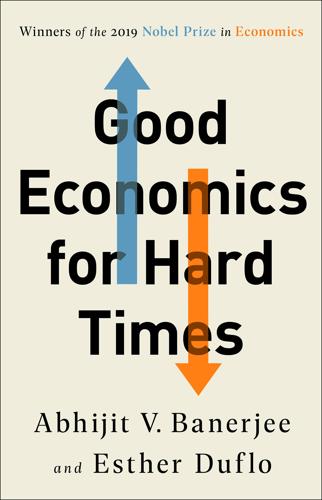
Good Economics for Hard Times: Better Answers to Our Biggest Problems
by
Abhijit V. Banerjee
and
Esther Duflo
Published 12 Nov 2019
Lower taxes were accompanied, first under Reagan and then even more strongly under Clinton, by “welfare reform” (in other words, gutting welfare), which was justified both on grounds of principle (the poor must be more responsible and therefore welfare must become workfare) and out of budgetary compulsion (resulting from diminished tax collection). Unions were brought to heel, both by changing the laws and by directly using state power against them (Reagan, famously, called out the army to break an air traffic controllers’ strike). Union membership has been in decline ever since.26 Regulations were made less restrictive, and there was a new consensus that a very compelling justification should be required before the “heavy hand of the government” was allowed to intervene in business. In the UK, something similar happened.
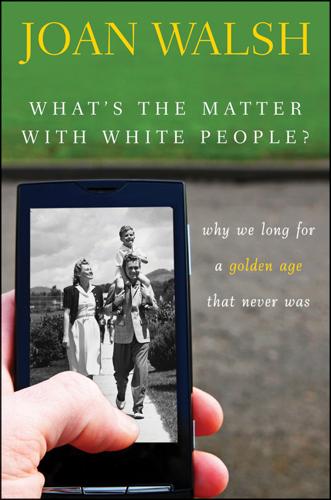
What's the Matter with White People
by
Joan Walsh
Published 19 Jul 2012
No such coalition was possible in his lifetime, and maybe not in mine. • • • It’s possible that Reagan’s greatest contribution to income inequality wasn’t his high-end tax cuts, but the way he took all of the air out of the labor movement when he fired the striking air traffic controllers in 1981. It’s not that the Professional Air Traffic Controllers Organization (PATCO) was an enormous union, but it symbolized a problem for labor that Republicans recognized before Democrats did: as unions lost power in the private sector, their only gains were coming in the public sector, and this divided the working class even more, into labor haves and have-nots. Ironically, PATCO had been one of the few unions to endorse Reagan.
…
Each night I stood in a multiracial crowd of activists and union members, some in tears, fervent Democrats thrilling to the words of reunion and redemption from Jackson, Cuomo, and Ferraro. The labor movement energy impressed me. I was there with a friend who was trying to reorganize air traffic controllers in the wake of Reagan crushing their union. It felt as if we were finally putting the Democratic Party back together again after 1968. Of course, Mondale would lose to Reagan more lopsidedly than Carter did, carrying only Minnesota and the District of Columbia. He had assembled the proto-Obama coalition, only about a quarter century too early.
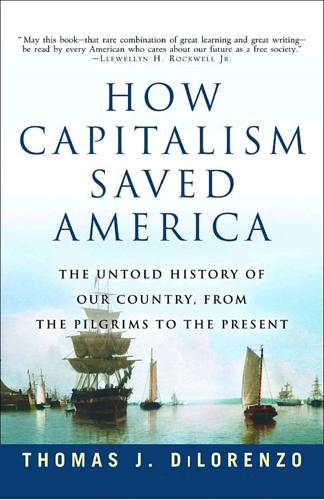
How Capitalism Saved America: The Untold History of Our Country, From the Pilgrims to the Present
by
Thomas J. Dilorenzo
Published 9 Aug 2004
This is patently undemocratic, because it effectively transfers the power to tax from the voters to these politically powerful public employees.) Contrary to Moore’s assertions, however, labor unions had begun losing members long before the 1980s; union membership as a proportion of the private-sector labor force had begun declining in the 1950s. By the time of the air traffic controllers’ strike, the steel, automobile, and textile industry unions had lost hundreds of thousands of members. Like Ehrenreich and other critics of capitalism, Moore recommends bigger and bigger government to solve the problems that capitalism has supposedly created, but of course he does not acknowledge how the higher taxes necessary to pay for his socialist schemes would make it even more difficult for American workers to make ends meet.
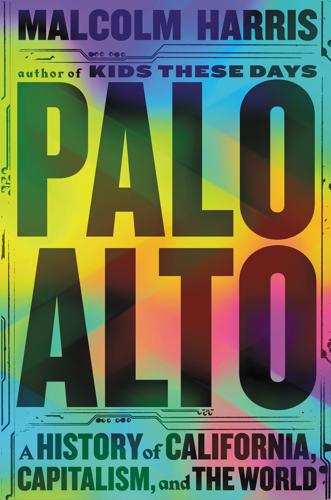
Palo Alto: A History of California, Capitalism, and the World
by
Malcolm Harris
Published 14 Feb 2023
The glut of cheap labor and commodities in this period undermined labor protections in the center as well as on the periphery, and the United States lost union jobs at a rapid clip. Reagan undermined the bulwark of government jobs by bringing Boulwarism to the White House. His signature incident occurred in his first year, when he fired more than 11,000 striking air traffic controllers and decertified their union. To the press, the president quoted an air traffic controller who quit the union and reported to work as ordered: “How can I ask my kids to obey the law if I don’t?”38 Once again, questions of individual criminality put the Reaganites on firm ground. Organized labor took to rearguard action, holding on to its institutions by agreeing to two-tiered contracts that reduced benefits and protections for new or future members.
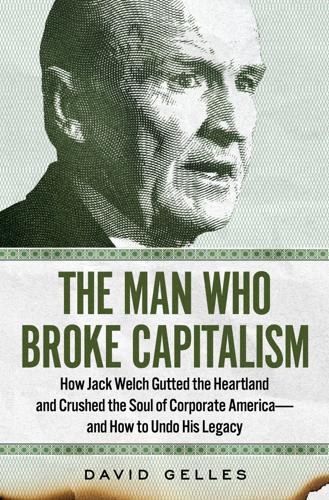
The Man Who Broke Capitalism: How Jack Welch Gutted the Heartland and Crushed the Soul of Corporate America—and How to Undo His Legacy
by
David Gelles
Published 30 May 2022
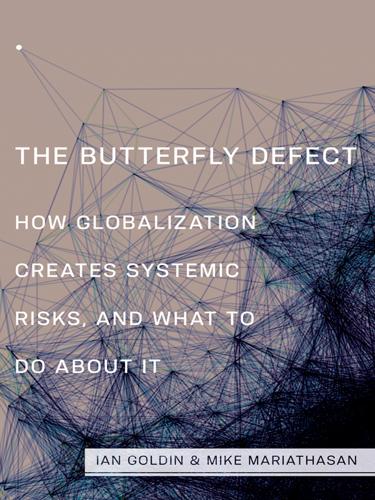
The Butterfly Defect: How Globalization Creates Systemic Risks, and What to Do About It
by
Ian Goldin
and
Mike Mariathasan
Published 15 Mar 2014
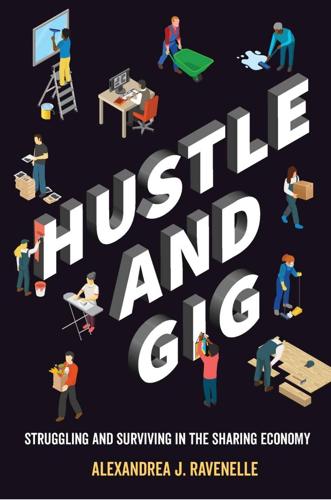
Hustle and Gig: Struggling and Surviving in the Sharing Economy
by
Alexandrea J. Ravenelle
Published 12 Mar 2019
A surge in steel and automobile imports, along with the 1981–1982 recession (described as the worst recession since the Great Depression, until the Great Recession) led to the perception that companies needed to be more focused on controlling costs down to the penny. The deregulation of trucking, airlines, and telecommunications, allowed for increased start-ups, but it also affected large, unionized companies. Finally, President Ronald Reagan’s firing of 11,500 striking air traffic controllers, and the disbanding of their union, paved the way for other companies to copy such hard-nosed tactics. While the Supreme Court had ruled in 1938 that companies could replace striking workers with permanent replacements, few companies had dared to do so before the 1980s. In short order, striking workers for the timber company Louisiana-Pacific, miners for Phelps Dodge, pilots for Eastern Airlines, and paper workers for International Paper found themselves replaced.26 In the 1990s, white-collar workers also found themselves on the losing end of a changing workplace social contract.
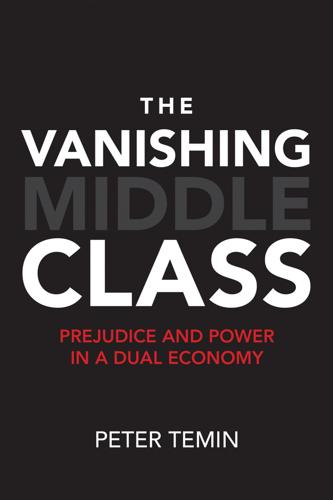
The Vanishing Middle Class: Prejudice and Power in a Dual Economy
by
Peter Temin
Published 17 Mar 2017
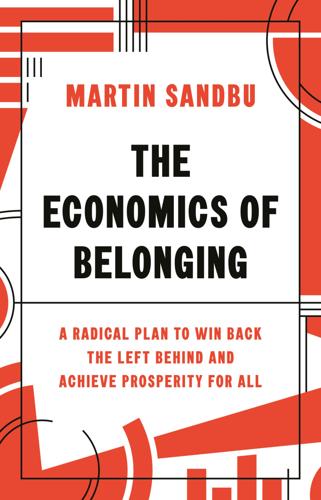
The Economics of Belonging: A Radical Plan to Win Back the Left Behind and Achieve Prosperity for All
by
Martin Sandbu
Published 15 Jun 2020
In some countries this has been preserved, notably in Scandinavia, where collective bargaining supports a collaborative relationship between employers and employees that has contributed to easing the adjustment to technological change. Elsewhere, however, collective bargaining has been eroded by governments sometimes deliberately acting to weaken unions. The iconic case comes from the first year of Ronald Reagan’s presidency, when he refused to accommodate demands by the air traffic controllers. In the standoff that followed, the union (which had endorsed Reagan as president) was crushed as the government managed to keep planes flying until striking controllers threw in the towel. The wider consequence was to immediately weaken the hand of unions across the board, as their most powerful weapon—striking—had been blunted.5 Over time, legislation has further disempowered organised labour.

Reaganland: America's Right Turn 1976-1980
by
Rick Perlstein
Published 17 Aug 2020
Watergate special prosecutor Leon Jaworski announced that he would head Democrats for Reagan, admitting that he had once called Reagan extremist—but better a “competent extremist than an incompetent moderate.” Reagan was also about to receive the nod from the seventeen-thousand-member Professional Air Traffic Controllers Organization union, who said Carter had “mismanaged” the air traffic control system, while Reagan understood “the vital role of the professional controller”: the endorsement came in exchange for a pledge to appoint a new FAA administrator who had their approval—and might also have been motivated by knowledge that President Carter had a plan on the books to undermine their union should they strike when their contract came up for renegotiation the following year.

Exponential: How Accelerating Technology Is Leaving Us Behind and What to Do About It
by
Azeem Azhar
Published 6 Sep 2021
Between 1979 and 1988, union membership declined 20 per cent, thanks to government policies – combined with economic hardship and a decline in manufacturing employment. The US was on a similar trajectory. In 1981, the newly elected Ronald Reagan fired over 11,000 striking air-traffic controllers and replaced them with non-union members. It marked a turning point in the history of American trade unionism. As a result, there was little unionisation in the early tech industry. This was still true as we entered the Exponential Age: the workforces of the digital superstars were completely un-unionised.
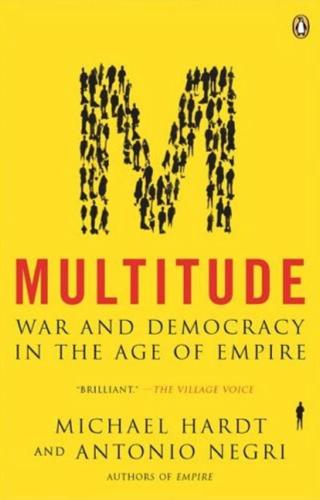
Multitude: War and Democracy in the Age of Empire
by
Michael Hardt
and
Antonio Negri
Published 1 Jan 2004
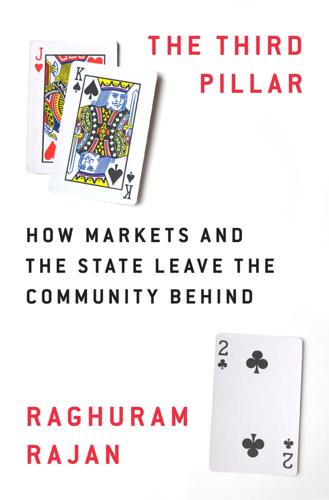
The Third Pillar: How Markets and the State Leave the Community Behind
by
Raghuram Rajan
Published 26 Feb 2019
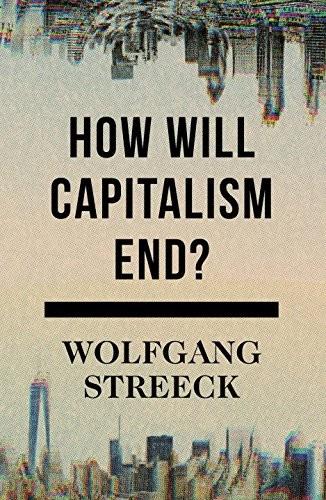
How Will Capitalism End?
by
Wolfgang Streeck
Published 8 Nov 2016
Thatcher, who had followed the American lead, had won a second term in 1983, also in spite of high unemployment and rapid de-industrialization caused, among other things, by a restrictive monetary policy. In both the United States and the United Kingdom, disinflation was accompanied by determined attacks on trade unions by governments and employers, epitomized by Reagan’s victory over the air traffic controllers and Thatcher’s breaking of the National Union of Mineworkers. In subsequent years, inflation rates throughout the capitalist world remained continuously low, while unemployment went more or less steadily up (Figure 2.2). In parallel, unionization declined almost everywhere, and strikes became so infrequent that some countries ceased to keep strike statistics (Figure 2.3).
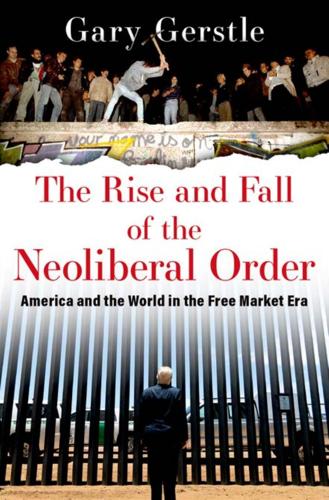
The Rise and Fall of the Neoliberal Order: America and the World in the Free Market Era
by
Gary Gerstle
Published 14 Oct 2022

The Raging 2020s: Companies, Countries, People - and the Fight for Our Future
by
Alec Ross
Published 13 Sep 2021
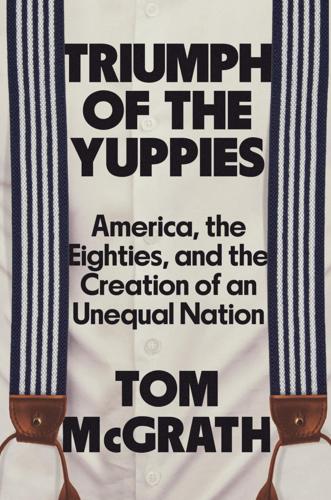
Triumph of the Yuppies: America, the Eighties, and the Creation of an Unequal Nation
by
Tom McGrath
Published 3 Jun 2024
Their walkout, motivated by a desire for better wages, shorter workweeks, and better equipment, had been in direct defiance of a law prohibiting federal government workers from striking, and Reagan hadn’t been shy about using his authority. “They are in violation of the law and if they do not report for work within 48 hours they have forfeited their jobs and will be terminated,” Reagan said on August 3, as the thirteen thousand members of the Professional Air Traffic Controllers Organization (PATCO) walked off the job. About thirteen hundred union members did return to work; the rest Reagan not only fired but banned from federal employment for the rest of their lives. As a political act, the firing of the air traffic controllers was savvy—in polls conducted immediately afterward, more than six in ten Americans approved of Reagan’s actions.
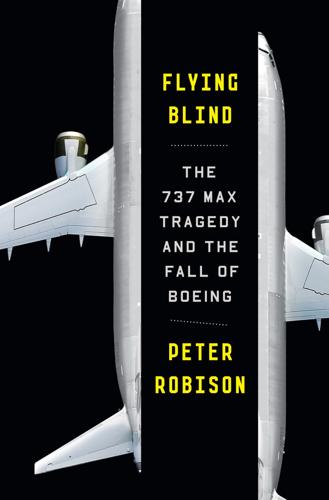
Flying Blind: The 737 MAX Tragedy and the Fall of Boeing
by
Peter Robison
Published 29 Nov 2021
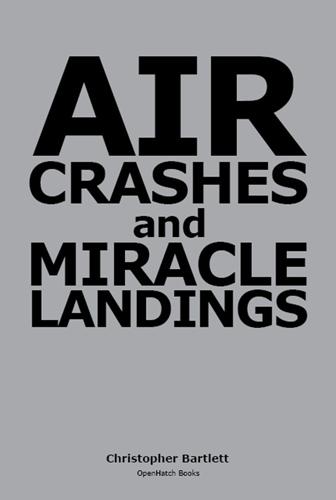
Air Crashes and Miracle Landings: 60 Narratives
by
Christopher Bartlett
Published 11 Apr 2010
The philosophy in the aviation community used to be that indulging in the blame game made finding the underlying causes of an accident more difficult. With the financial stakes nowadays so high, tremendous pressure is being exerted on accident investigators by all the parties—airline, aircraft manufacturer, engine maker, airport, air traffic control (ATC) and not least the pilots and their unions—with each putting their own spin on the event. As mentioned on page 221, aviation lawyer Healy-Pratt has said to the author that all investigations are somewhat political. One can see his point, especially in cases where the cause is not obvious and where the investigators may have the future of one of their country’s key industries in their hands.
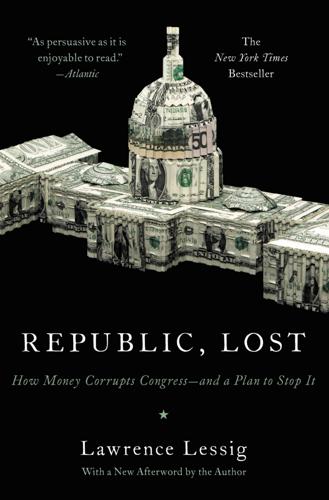
Republic, Lost: How Money Corrupts Congress--And a Plan to Stop It
by
Lawrence Lessig
Published 4 Oct 2011
Vaccaro 0 9,200 9,200 Federal Realty Investment Trust 0 8,900 8,900 Cetrulo & Capone 0 8,900 8,900 Dimeo Construction 0 8,700 8,700 Airline Pilots’ Assn. 9,500 0 9,500 American Hospital Assn. 7,500 1,000 8,500 Massachusetts Mutual Life Insurance 10,000 0 10,000 Palmetto Group 0< Bsiz p/td> 8,000 8,000 O’Neill, Athy & Casey 0 10,750 10,750 Robinson & Cole 1,500 6,150 7,650 Amalgamated Transit Union 7,500 0 7,500 Brotherhood of Locomotive Engineers 7,500 0 7,500 Amgen Inc. 5,000 2,500 7,500 American College of Emergency Physicians 7,500 0 7,500 American College of Surgeons 7,500 0 7,500 Carpenters & Joiners Union 7,500 0 7,500 Brown Brothers Harriman & Co. 0 7,400 7,400 Alternate Concepts Inc. 0 7,400 7,400 Edwards, Angell et al. 2,400 4,900 7,300 Scansoft Inc. 0 7,200 7,200 Commonwealth of Massachusetts 0 7,060 7,060 International Assn. of Fire Fighters 7,000 0 7,000 Global Companies 0 7,000 7,000 National Air Traffic Controllers’ Assn. 7,000 0 7,000 Sheet Metal Workers’ Union 12,000 0 12,000 Textron Inc. 7,000 0 7,000 Beal Co. 0 5,800 5,800 Manulife Financial 6,50 Bign=" p0 250 6,750 Ads Ventures 0 6,650 6,650 Partners Healthcare 0 15,400 15,400 Rasky/Baerlein Group 0 6,550 6,550 Haleakala National Bank 0 6,100 6,100 Endo Pharmaceuticals 6,000 0 6,000 Metlife Inc. 6,000 0 6,000 RMD 0 6,000 6,000 Roche Holdings 6,000 0 6,000 National Assn. of Home Builders 6,000 0 6,000 Nat’l Assn.
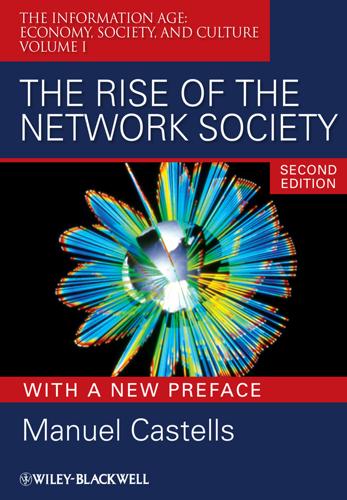
The Rise of the Network Society
by
Manuel Castells
Published 31 Aug 1996